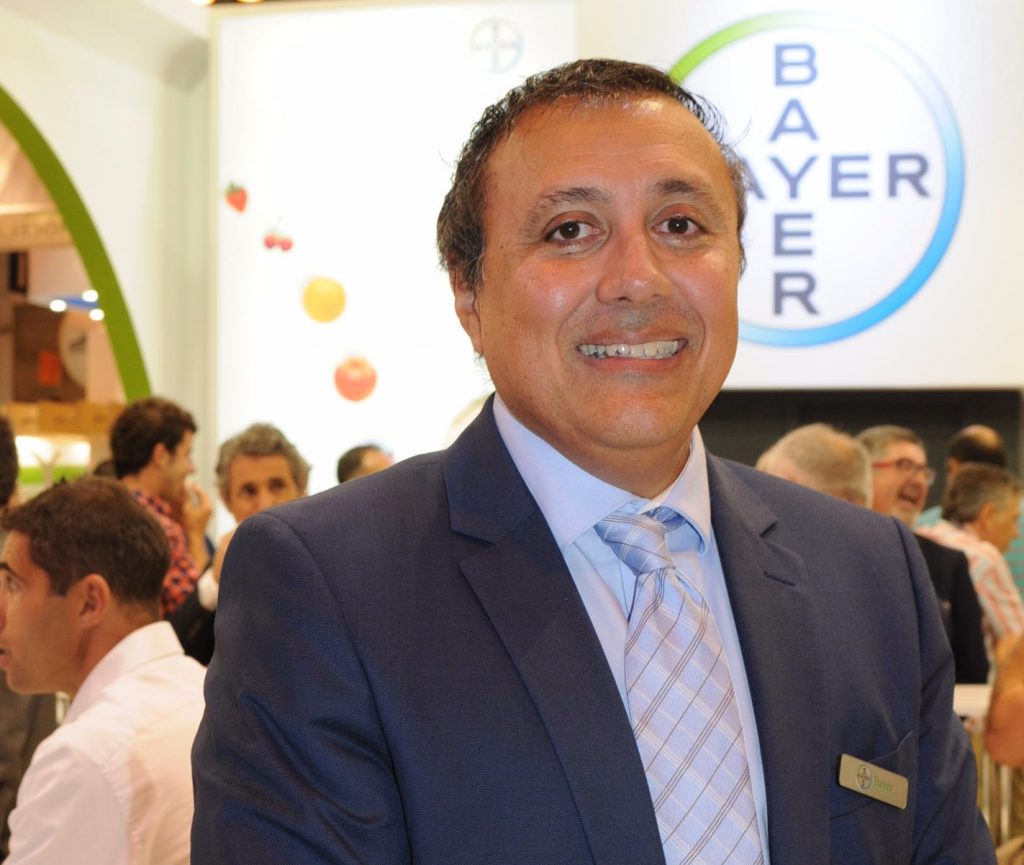Interview of the Month: How Bayer can support growers along the food value chain
In the Interview of the Month from issue 146 of Eurofresh Distribution magazine we put four questions to Ronald Guendel, who is the global head of Food Chain Relations at Bayer Crop Science. Here Guendel addresses topics including how Bayer tailors integrated crop solutions according to sustainable agricultural principles in order to help its partners enhance food safety, quality, yield, and traceability
Why is Fruit Logistica important to Bayer and what are your points of emphasis at this year’s event?
Fruit Logistica is the most important international trade fair for fresh produce. Next year will be Bayer’s 12th year in attendance—a decision we have never regretted. The contact we maintain with our customers and partners along the entire value chain at Fruit Logistica is simply invaluable. Over the last dozen years, our participation at Fruit Logistica has continuously evolved and taken on new significance. In the beginning, the trade fair was an important platform for us to invite farmers to join our Food Chain Partnership initiative. Over the years, our network has grown considerably. Today, the fair gives us an opportunity to network efficiently and stay in touch with key individuals along the entire value chain. In 2017, one of our main focus points will be the cultivation of European fruit and vegetable and how Bayer can support growers and other participants along the food value chain to ensure even better sustainability and reduce their environmental footprint.
What exactly is the Food Chain Partnership? Can you explain the initiative’s focus and reach?
Food Chain Partnership is an innovative business model that we at Bayer have developed so we can work closely with growers, traders, processors and retailers. We started this initiative in 2005, mainly as a reaction to public concerns about food safety and residues in fruit and vegetables. At this time, the industry was called upon to address the need for greater food safety, with consumers placing increasing importance on products that are produced sustainably and can be traced back to the producer. Our main role is to act as a facilitator and bring together the partners along the food value chain by sharing our expertise. Based on individual local needs, we develop tailor-made integrated crop solutions according to sustainable agricultural principles that help all partners involved enhance safety, quality, yield, and traceability. Today, about 70 Bayer food chain managers work in 30 countries around the world, focusing on more than 50 different crops. Our initial focus was on fruit and vegetables. But this successful model was recently expanded to include field crops such as oilseed rape, wheat and rice. The majority of our projects are in Europe, Latin America and Asia, but the number of initiatives in Africa and North America is increasing.
Bayer Food Chain Partnership became part of the GLOBALG.A.P. protocol, in order to start certifying stakeholders. What value does the Food Chain Partnership add to existing protocols
GLOBALG.A.P. focuses on Good Agricultural Practices and sets voluntary standards for the certification of agricultural products around the globe. In 2014, we formed a cooperative partnership with GLOBALG.A.P. to help small- and medium-sized farmers in developing countries implement sustainable cultivation practices and comply with local quality and certification standards in order to eventually obtain recognition (localg.a.p.). Bayer customized its BayG.A.P. service program to the requirements of the localg.a.p. standards. It follows a three step approach, consisting of training, farm advice, and verification support for farmers. Participating farmers benefit from certified high-quality produce that they can sell at higher prices to enhance their income. Traders and retailers benefit from the consistent high quality of the products, enhanced safety, and traceability. The program has gained traction and is expanding globally. So far, we have initiated 18 pilot projects everywhere from Africa and Asia to Europe and Latin America. On top of that, we’ve already received very positive feedback from farmers and food chain partners. And we’re only getting started.
What is the extent of Bayer Food Chain Partnership programs in Asia and in the Americas?
We’ve initiated numerous projects in Asia and Latin America across a broad range of crops. In Asia, it’s mostly projects for fruit and vegetables, especially potatoes and rice. India is a very good example. We’ve initiated several projects to promote good agricultural practices there, and the results have been extremely promising. Through a project on table grapes, we helped increase yields by an average of 7% and improve produce quality at the same time. And our guidance throughout the crop cycle resulted in a 35% higher grower net income. Besides India, we also initiated projects in China, South Korea, Thailand, and Malaysia. In Latin America, we’re working with farmers in Brazil, Chile, Costa Rica, Peru, Mexico and other parts of Central America—in Guatemala, for example, where we’ve partnered with the exporter SIESA Group to support small-scale growers in producing high-quality vegetables. All of our project partners have enjoyed clear benefits. With our help, the vegetable farmers can produce more exportable produce and sell at higher prices, SIESA can protect its market share by exporting safe products, and their retailers can promote the high quality and safety of the products to domestic customers.
Siesa partnered with Bayer in its Food Chain Partnership initiative in 2008. The Guatemalan company benefits from intensive training in good agricultural practices and technical recommendations in order to achieve the best possible quality.



